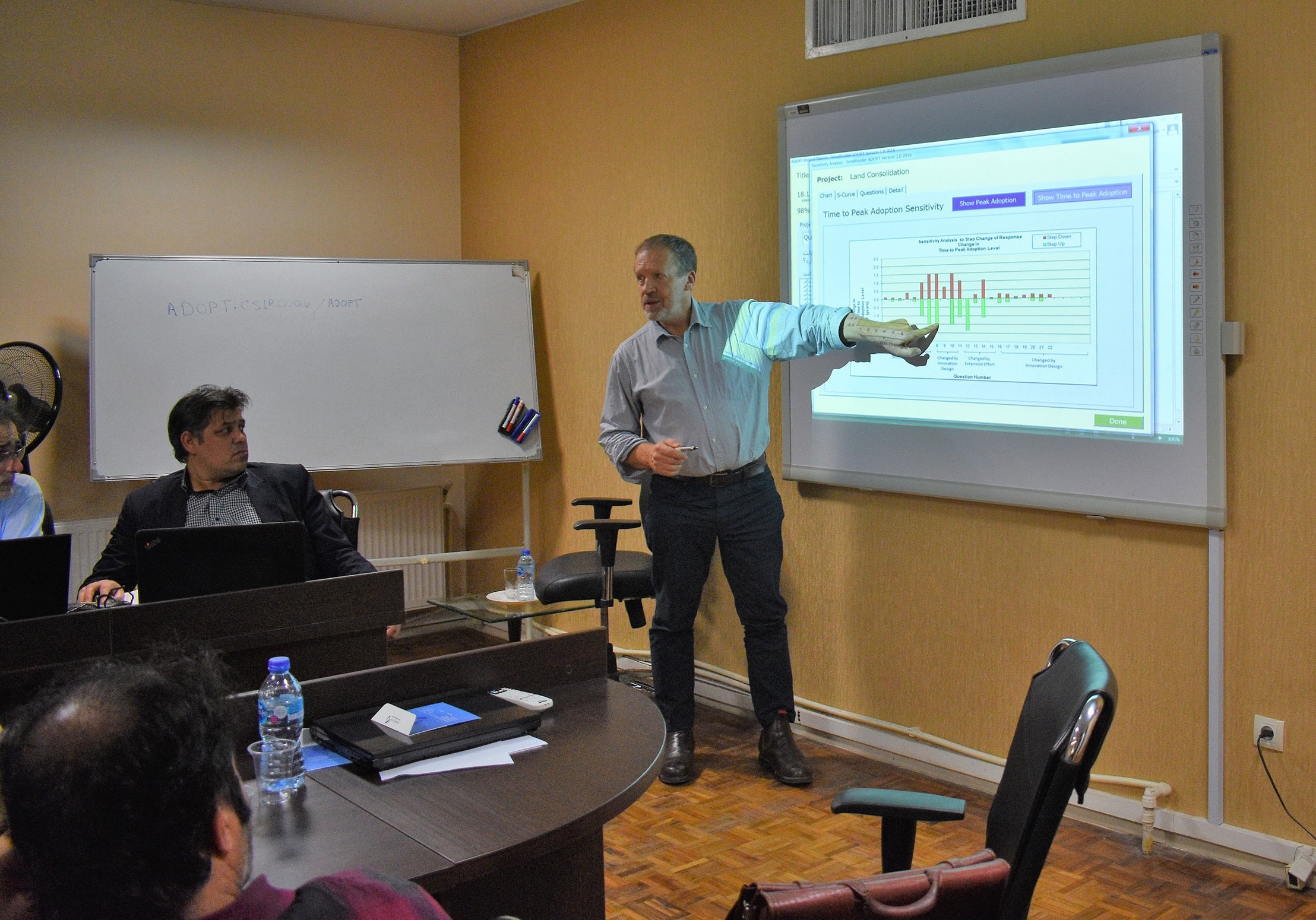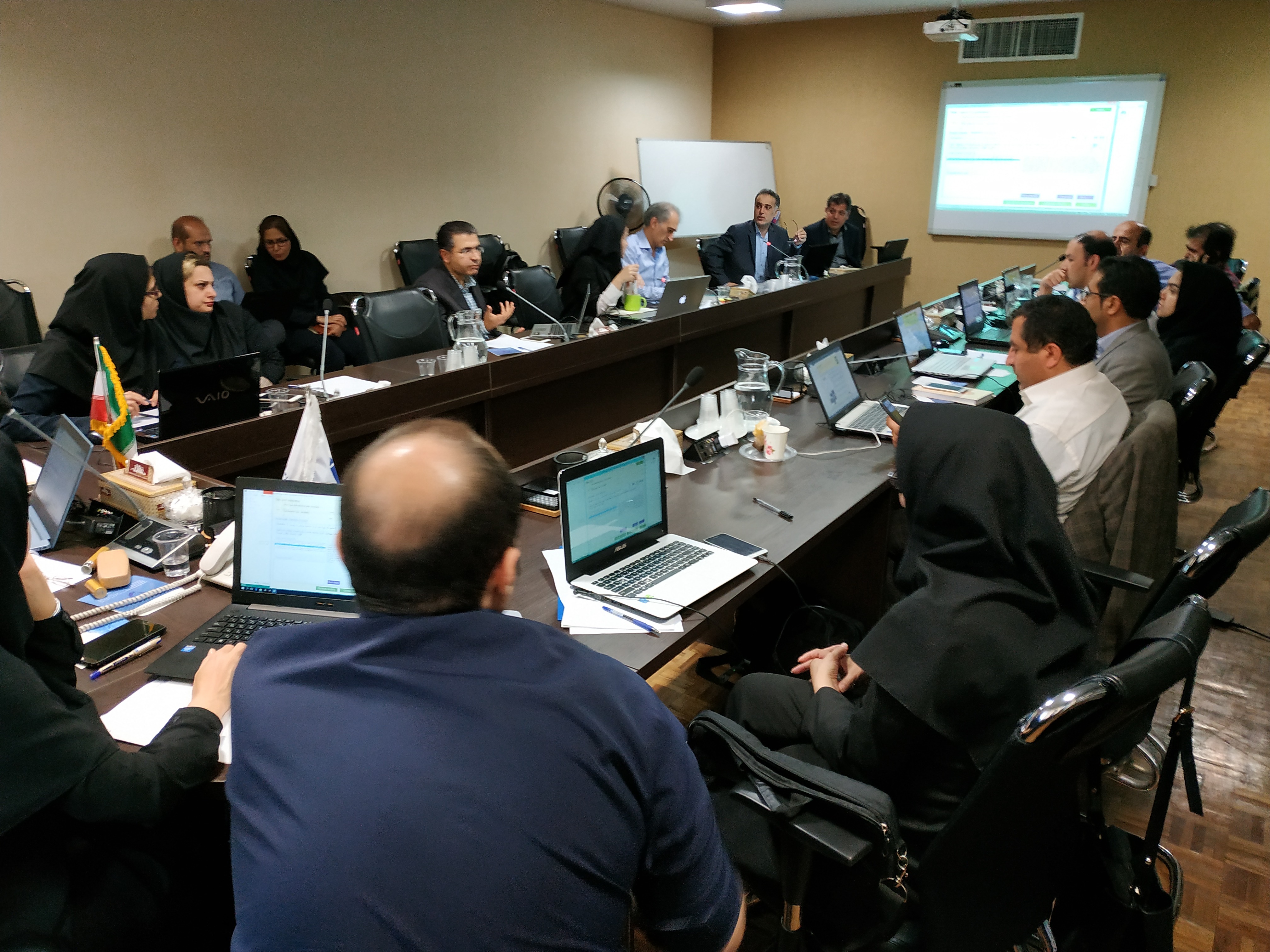

Two workshops on training in Smallholder ADOPT – Iran and India
July 31, 2019
Our SA committee supported Dr Geoff Kuehne in holding two training workshops recently in Iran and India to strengthen adoption of new technologies, following 2018 workshops supported in Indonesia..
The training was focused around “Smallholder ADOPT” (Adoption and Diffusion Outcome Prediction Tool), an MS Excel-based tool for which Dr Kuehne was the principal researcher in its development. It evaluates and predicts the likely level of adoption and diffusion of specific agricultural innovations in a developing country smallholder context.
Highlights from the expert training in the Farsi version of Smallholder ADOPT in Iran and a 2-day training workshop Training in Smallholder ADOPT in India follow:
IRAN
The workshop commenced in Isfahan and was also sponsored by the Isfahan Agricultural and Natural Resources Engineering Organisation. Over 100 people attended a series of lectures on innovation in Australian agriculture, water reform in the Murray Darling Basin, adoption principles, culminating in an interactive session involving audience participation where Smallholder ADOPT was demonstrated. This was the first time that Smallholder ADOPT had been demonstrated on such a scale using audience inputs.

A two-day workshop in Tehran followed and was split into two one-day workshops with different audiences:
The first workshop at Sharif University of Technology (Iran’s leading university) was attended by 15 Masters and PhD students. The training activity involved three presentations setting the scene for the demonstration of the Smallholder ADOPT tool. Through their actions, participants demonstrated one of the important outcomes of the use of the ADOPT tool – the discussion and greater understanding that comes from it.
The second workshop was held at the premises of Jamab Consulting Engineers and was attended by 25 policy makers, PhD students and others. Jamab consulting is a private organisation with a close relationship with the Ministry of Jihad-e-Agriculture. This training event involved a group of interested participants who were eager to use the ADOPT tool to evaluate a practice change related to the ownership and cooperation among farm owners. This was aimed at addressing the problem where 72% of Iranian farmers own farms of less than five hectares which can be made up from fragmented farmland. The Iranian government has set a goal that these land reforms will be achieving with-in ten years. Based on participants inputs Smallholder ADOPT generated a prediction suggesting that near to full adoption of the reforms would be achieved, but that it would take 18 years to be achieved. There was much discussion among the group of how the diffusion of the innovation could be improved so that it would be closer to the Iranian Government’s targets.
“Overall the Iranian workshop participants were engaged and questioning, and not prepared to just accept the value of Smallholder ADOPT without evidence. When the development of the tool and rigour of the development process, and the efforts made at ensuring validity were explained, participants were accepting of the tool,” said Geoff.

INDIA
The 2-day training course in India was held in the Pune offices of India’s largest philanthropic organisation, Tata Trusts. Tata Trust partners with over 450 NGOs and works across 170 districts in 17 Indian states. Its activities improve the lives of millions of people in thousands of villages. Vikas Anvesh Foundation, a Tata Trust sponsored organisation, nominated the workshop participants and also brought some in from other areas of India specifically for the training.
“The informal comments from participants and organisers following the completion of the training was that it was appreciated and worthwhile. The broad knowledge of adoption of agricultural innovations that they gained is likely to be immediately useful, while Smallholder ADOPT is more likely to be used when a need occurs,” reported Geoff.
Tata Trust workshop participants commented about the Smallholder ADOPT tool:
“It is easy to use, it is logical, and gives results accordingly” and “It was good learning for us. I just assumed that adoption would happen on its own.”




